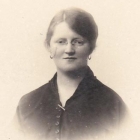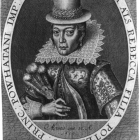People are always telling me that there is no way that you can find your Irish roots because all the records are lost. This article can help your search.







CHAPTER 23
THE RUSSIAN SOLDIERS
THE Russian soldier looms at present very large on every horizon. Many a time have I seen Russian soldiers marching along to the regimental band, and when it stopped playing, singing choruses as they marched with vigour.
The Cossack regiments are most picturesque; they are magnificent horsemen and can stoop from the saddle and pick up any small article from the ground. Personally, I have always thought them slightly theatrical in costume, though their faces look martial enough for anything.
On holidays they wear long scarlet coats reaching nearly to the ankles, and topboots wrinkled at the legs. Their every-day uniform is a dark blue coat lined with scarlet. They are armed with silver-mounted swords, often heirlooms in their family, and wear a silver-mounted dagger in their belts, and they carry a rifle, the cartridges being slung across the breast of the coat. When the men are on horseback the rifle is carried across the saddle. The Cossacks are expert marksmen and can hit a target while going at full gallop. They are devoted to the Imperial family.
The Russian soldier receives board, lodgings, uniform and washing, and pocketmoney at the rate of about one shilling per month. Out of this he has to provide himself with threads. He can, of course, earn a little more by doing odd jobs for his superiors, or acting as servant in an officer's family. I have frequently seen a private taking the children of an officer out for a walk. They are kindly handy creatures, and always seemed devoted to the little ones in their charge. The soldier receives his pocket-money every week, and generally puts by a little of it till he has saved about sixpence or eightpence. When he has this magnificent sum in his possession he indulges in his favourite amusement -- i.e., he takes a street carriage and goes for a drive. Very funny and solemn he looks driving up and down the Nevsky.
No officer can live on his pay in Russia. A captain receives about twenty pounds per annum, which is not enough to dress him even. I myself know a general on half-pay; his income was just thirty pounds per annum and he had a wife and daughter to keep. In his youth he had painted pictures in watercolours. These he sold either in shops or to his friends, but his pictures had little or no merit, and became increasingly difficult to dispose of. When he rose to be a colonel his rank forbade him to try to sell his paintings, and so he bought a camera and eked out a miserable livelihood by photographing all sorts of scenes and selling the pictures. Amateur photographers were rare then, and for a while he did well. He used to be allowed to travel with the Imperial family and sent his photographs for reproduction in the newspapers; but he was old, unable for the fatigue of such a life, and was obliged to give it up. The Emperor gave him a flat with wood and light, and there this brave old soldier lives, with his wife and one daughter, on his thirty pounds per annum -- a miserable life, indeed! He chose the wrong profession, one would say, but he still assures me that there is no life like the soldier's one, even without private means.
I once came into conflict with the military in Tsarskoe Selo. A room had been fitted up in the palace as a church, and the Empress and children attended Mass there on Sunday mornings. The Empress told me to get into the church by a little side-door, which would bring me just behind her chair, as all her three children were in church, and Marie Nicolaivna was so tiny a child that she might get restless. I went and found a soldier mounting guard outside the door; he refused to let me pass. I speak Russian very badly, and I tried to explain, but all to no purpose. So I waited and he stood and looked at me. Presently one of the Grand Dukes came along, and I explained the situation to him. He turned to the soldier, and he told him to let me pass. The soldier again refused, and the Grand Duke told him who he was. Of course, the man did not know him, and replied, "I don't care if you are the Emperor himself." The Grand Duke then asked him who had stationed him there, and the soldier replied, ÒMy corporal, and without his permission I shall not allow anyone to pass through this door."
The Grand Duke then told me to wait for a few minutes, and he went off and found the corporal. The latter, when he came, was in a terrible rage. He seized the unfortunate soldier by the shoulders and began to shake him, but the Grand Duke interposed, told the corporal that the man was only doing his duty in obeying orders, and turning to the other complimented him highly, and said he was pleased to find that the soldiers were so obedient and so faithful to their orders. The poor soldier had tears in his eyes when the Grand Duke had finished speaking. Orders were given that in future I should be allowed to pass on giving my name.
On one occasion the Grand Duke Paul's children came to their own house at Tsarskoe Selo. A sentry was placed in the garden, but he did not know the children at all, and probably mistook the hour at which they were expected. He was dumbfounded when the children came running up and began to play in the sacred gymnasium and swing in the holy swings. He approached and said in his sternest tones, ÒWhat are you doing there? Don't you know that these gardens and all in them belong to Demitri and Marie Paulovitch?" Demitri mildly announced his identity, and the soldier said with great scorn, ÒOh yes; it is very easy to say, 'I am the Grand Duke Demitri,' but thou art a liar," using the familiar form of address. His distress was very great when he found that the children really belonged to the Imperial family.
When the war in the East broke out, it was very sad to see the soldiers marching off. I had never seen such a sight before, and to my eyes they looked so badly provided for such a long journey, but the trains provided for their use were exceedingly comfortable. The crossing of Lake Baikal seems to have been the worst part of the journey. The train moving across it broke down, as the ice was not strong enough for the traffic, so they went in sledges. Every .few miles shelters were erected. The soldiers got hot coffee or soup and could thaw themselves at the fire before proceeding another stage. But even with these precautions some were frozen to death.
The Emperor got many thousands of letter-forms printed, and the children and I folded them, put them in envelopes, and stamped them -- or many of them. The form of letter was something as follows: "My dear parents,-- I am at___ In the battle of___; I was wounded in___ (or) I am ill in hospital; (or) I am in good health. How are___? Give my love to___." The blanks were to be filled in by a comrade who could write, or by a nurse. 'Many thousands of these letters were returned to cheer the hearts of the anxious relatives.
I was given a good many presents for the Empress's working party. A gentleman gave me five thousand roubles for the Empress; a lady gave me five hundred pounds of soap, and quantities of tow for the soldiers. There was a corridor at the Winter Palace packed with cases full of comforts for the soldiers. These were sent off every week, and we had the satisfaction of knowing that all we sent out arrived safely. But many strange stories were current as to the fate of the parcels sent from other working parties. One of the Grand Duchesses was head of the Red Cross Society, and had an enormous working party. She heard that when the boxes reached their destination they were half filled with rubbish. So the story goes that one evening, just before the train started for the East, she and one of her ladies went up to the station and insisted on examining the boxes. She found that the cases were half filled with stones and rubbish, with a layer of goods laid over them. I do not pretend to vouch for the truth of this story, but it was common talk in St. Petersburg and was never contradicted.
The Empress wished each soldier to receive a separate bundle for Easter, each containing one shirt, one handkerchief, one pair of socks, a set of bandages for the legs, one woollen cap, one parcel of tobacco with cigarette papers, one piece of soap and tow for washing, tea, coffee, sugar, notepaper and stamped envelopes, and a printed letterform.
Nearly everyone in the palace sent at least one such parcel, with the name and address of the donor inside, and many grateful letters were received from the recipients.
At the beginning of the war all nurses sent to the front were thoroughly trained, but later, when it became necessary to send more nurses, the authorities took almost all who volunteered, provided their health was good, gave them a short training-just six weeks in a military hospital -- and sent them out. I saw one of these girls when she was ready to go out. She informed me that she had learned to read Latin, and could prescribe for patients as well as nurse them! All this in six weeks, and she had been a servant girl. Well, a few days in the hospital at the front would soon take that idea out of her.



